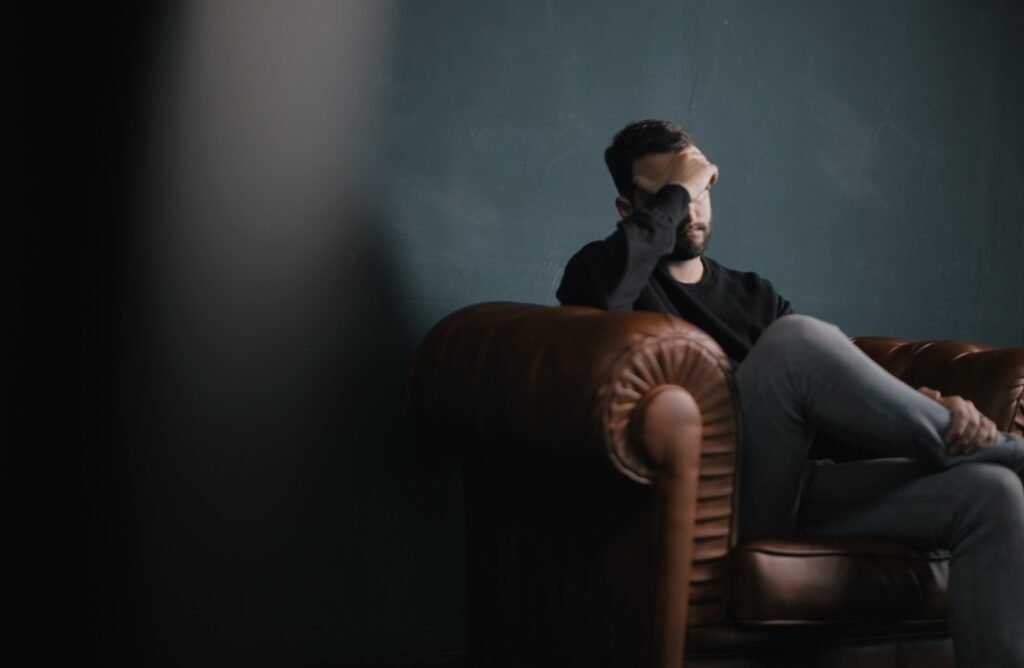Welcome to this comprehensive guide all about bipolar depression. As someone who has experience with this condition, I know firsthand how difficult it can be to navigate. That's why I've written this guide to provide you with a deep understanding of bipolar depression, so you can feel empowered and better equipped to manage your own journey.
In this guide, we will explore what bipolar depression is and the symptoms that come with it. We'll also delve into the potential causes and ways to treat this condition.
Key Takeaways:
- Bipolar depression is a complex mental health condition that can be difficult to diagnose and treat.
- Symptoms of bipolar depression can range from extreme highs (mania) to extreme lows (depression).
- While the exact causes of bipolar depression are not yet fully understood, genetics, environment, and brain chemistry all play a role.
- Treatment for bipolar depression may involve medication, therapy, and lifestyle changes.
- Living with bipolar depression can be challenging, but with proper treatment and support, it is possible to manage this condition and live a fulfilling life.

What is Bipolar Depression?
In this section, I will provide an overview of bipolar depression and how it differs from other forms of depression. Bipolar disorder is a mental health condition characterized by extreme mood swings, with periods of elevated or manic moods alternating with periods of depressed moods.
Symptoms of bipolar may include:
- Feeling elated, euphoric, or overly optimistic
- Having racing thoughts and difficulty concentrating
- Experiencing a decreased need for sleep
- Being easily distracted
- Feeling irritable, agitated, or restless
- Engaging in high-risk behaviors or impulsive actions
- Feeling sad, hopeless, or empty
- Having difficulty sleeping or oversleeping
- Feeling fatigued or lacking energy
- Experiencing changes in appetite or weight
- Feeling guilty, worthless, or hopeless
Bipolar depression is a type of bipolar disorder where the main symptoms are episodes of depression, alternating with periods of normal or hypomanic moods.
It is important to note that bipolar disorder is distinct from major depressive disorder, which is characterized by persistent depressive symptoms without the presence of manic or hypomanic episodes.

Understanding the Types of Bipolar Disorder
There are several types of bipolar disorder, each with unique characteristics and symptoms. Understanding these types is crucial for proper diagnosis and treatment. The three main types of bipolar disorder are:
| Type | Description |
|---|---|
| Bipolar I Disorder | This type involves at least one manic episode, lasting at least one week. Manic episodes can include symptoms such as high energy, restlessness, and grandiosity. |
| Bipolar II Disorder | This type involves at least one hypomanic episode and one major depressive episode. Hypomanic episodes are similar to manic episodes but are less severe and do not usually result in significant impairment. |
| Cyclothymic Disorder | This type involves chronic mood instability, with numerous periods of hypomanic symptoms and depressive symptoms that do not meet the criteria for a major depressive episode. |
It's important to note that bipolar disorder can also include mixed episodes, where an individual experiences symptoms of both mania and depression simultaneously. These episodes can be particularly challenging to manage and require specialized treatment.
Common symptoms of bipolar disorder include:
- Depressive symptoms such as sadness, hopelessness, and loss of interest
- Manic or hypomanic symptoms such as high energy, euphoria, and irritability
- Changes in sleep patterns, appetite, and activity level
- Difficulty concentrating or making decisions
- Thoughts of death or suicide

Diagnosis and Treatment
Diagnosing bipolar disorder can be challenging, as symptoms can be similar to other mental health conditions. A mental health professional will typically conduct a thorough evaluation, including a physical exam and psychological assessment, to make an accurate diagnosis.
Treatment for bipolar disorder often involves a combination of medication, therapy, and lifestyle changes. Mood stabilizers such as lithium and anticonvulsants can help manage manic and depressive symptoms, while therapy can provide valuable coping skills and support. Lifestyle changes such as maintaining a regular sleep schedule and avoiding substance use can also be helpful in managing symptoms.
It's important to work closely with a mental health professional to develop an individualized treatment plan that meets your specific needs.
Causes and Triggers of Bipolar Depression
There's no one-size-fits-all answer to what causes bipolar depression. However, various factors can predispose someone to develop this condition. Research suggests that genetic, environmental, and biological factors may all play a role.
Studies have found that bipolar disorder runs in families. If someone in your family has a history of bipolar disorder, you may be more likely to develop it. However, having a family history of bipolar depression doesn't mean you're guaranteed to get it.
Environmental factors can also contribute to bipolar disorder. For example, exposure to chronic stress, trauma, or abuse may increase someone's risk of developing bipolar depression. Substance abuse can also trigger an episode of bipolar depression, or worsen the symptoms.
Biological factors such as the imbalance of neurotransmitters, hormones, or the structure and function of the brain may also contribute to the development of bipolar disorder.
It's important to note that not everyone with these risk factors will develop bipolar disorder, and not everyone with bipolar disorder has these risk factors. The exact cause of bipolar depression is still being studied, and treatments are based on managing symptoms rather than curing the condition.
"Studies have found that bipolar disorder runs in families."
Treatment Options for Bipolar Depression
There are a variety of treatment options available for managing bipolar depression. These options can help control your mood swings, reduce symptoms, and improve your quality of life. It is important to work with a mental health professional to determine the best treatment plan for your specific needs.
Medication: Medication is often used to treat bipolar depression. Mood stabilizers, antipsychotics, and antidepressants can all be effective in managing symptoms. It is important to work closely with your doctor and monitor any side effects.
Therapy: Therapy can be helpful in managing symptoms of bipolar depression. Cognitive-behavioral therapy (CBT) and psychotherapy can help you understand your mood swings, develop coping strategies, and improve your relationships.
Lifestyle Changes: Making lifestyle changes can also help manage symptoms of bipolar depression. This can include getting regular exercise, ensuring adequate sleep, and avoiding drugs and alcohol.
Bipolar Depression Medication: There are a variety of medications that can be used to treat bipolar depression. These can include mood stabilizers such as lithium, antipsychotic medications like risperidone, and antidepressants like fluoxetine. It is important to work with a doctor to determine the best medication for your specific needs.
Treatment Options for Bipolar Depression
- Medication
- Therapy
- Lifestyle Changes
- Bipolar Depression Medication
Remember, managing bipolar depression is a process and may require a combination of these treatment options. It is important to work with a mental health professional to find the right balance for your unique situation.

Living with Bipolar Depression
Managing bipolar depression can be challenging, but with the right strategies and support, it is possible to live a fulfilling and stable life. Here are some tips that have helped me:
- Stick to a routine: Maintaining a consistent schedule for sleeping, eating, and taking medication can help regulate mood and prevent episodes.
- Stay engaged: Participate in activities that bring you joy and a sense of accomplishment, whether it be spending time with loved ones, pursuing a hobby, or volunteering for a cause you care about.
- Practice self-care: Prioritize your physical and mental health by eating well, exercising regularly, and engaging in relaxation techniques like meditation or deep breathing.
- Find support: Joining a bipolar depression support group or seeking therapy can provide a safe and understanding space to share experiences and learn coping mechanisms.
Remember, living with bipolar depression is a journey, and there will be ups and downs. However, with perseverance and a willingness to seek help when needed, it is possible to achieve stability and lead a fulfilling life.
Conclusion
In conclusion, I hope that this comprehensive guide has provided you with a deeper understanding of bipolar depression. By learning about the symptoms, types, causes, and available treatments, you can take control of your journey and find the support you need. Remember, living with bipolar depression can be challenging, but with the right tools and resources, you can achieve stability and well-being. Managing bipolar depression involves a combination of medication, therapy, and lifestyle changes. It's essential to work closely with your healthcare provider to find the right treatment plan for your unique needs. Additionally, practicing self-care, building a strong support system, and finding the right balance in your daily life can also make a significant difference. I encourage you to prioritize your mental health and seek out resources that can help you on your path towards wellness. There are many support groups, online communities, and resources available for individuals living with bipolar depression. Remember, you are not alone, and there is hope for a better tomorrow. Thank you for taking the time to read this guide, and I wish you all the best on your journey towards healing.






